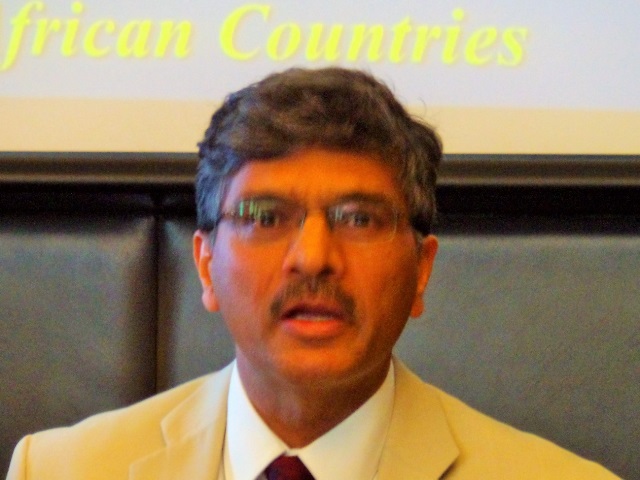According to Harinder Sood of DPKO, Japan has responded positively HIPPO and C34 suggestions to strengthen African capacities to deploy peacekeeping forces rapidly.

Please see below a summary of main points made by Mr. Harinder Sood in his presentation during a session on “Partnerships in Training and Capacity Building in Peace and Security: International Cooperation and Local Ownership” at the TICAD Workshop organized by the Cairo Center for Conflict Resolution and Peacekeeping Activities in Cairo on 13 and 14 July 2016.
1. The Triangular Partnership Project intends to train and equip African military engineering contingents with Heavy Engineering Equipment purchased as United Nations Owned Equipment through the project and deploy them to peacekeeping missions.
2. The triangular partnership comprises the United Nations which plans, implements and manages the Project, member states which support the capacity building, and the African Troop Contributing Countries, current as well as potential, which support United Nations peacekeeping.
3. The training concept includes training at a static training facility where a training set of equipment will be held as well as mobile training in a host-Troop Contributing Country setting where the equipment will either be rented/leased locally/regionally, transported from the static facility, or already provided bi-laterally by other member state(s). The concept also includes building capacity in terms of local/regional trainers by conducting Training-of-Trainers (TOT) courses.
4. The core capabilities which will be enhanced through the project are:
a) Road construction and repair.
b) Airfield construction/rehabilitation.
c) Helipad construction/rehabilitation.
d) Campsite preparation (clearing and filling).
e) Transport, recovery and maintenance of engineering equipment.
5. As of July 2016, the Project has already conducted trial training to prove the concept for 10 engineers from Kenya, Rwanda, Tanzania and Uganda in 2015, a curriculum development workshop in March 2016 and Training Needs Analysis of the first contingent in May 2016. Currently, engineering plant equipment operation training is ongoing at Nairobi (until October 2016) for 60 Kenyan Army engineers, as is a Training-of-Trainers pilot course (until 26 August 2016) for 8 engineering instructors from Kenya, Rwanda, Tanzania and Uganda.
6. For the United Nations, the Project aims to broaden the engineering pool of Troop Contributing Countries capable of deploying to a field mission for filling a critical gap. For the supporting Member States, the Project provides an opportunity to contribute through means other than providing peacekeeping troops by providing instead trainers, mentors, training equipment, funding, and such other support. For the African Troop Contributing Countries, the Project will provide professional engineering training with added benefit of technology and skills transfer thus building capacity to contribute both to peacekeeping as well as to national requirements.
7. Current priorities for the Project are to deepen existing partnerships with Japan, Switzerland, Kenya and Brazil as well as engaging new partners, G7 countries, as well as African Troop Contributing Countries. Going forward, the Project also intends to support enhancement of other enabling capabilities such as Medical, Communications. Transport, etc. which are essential for peacekeeping operations through the triangular partnership model.

Triangular Partnership Project is a great initiative by the UN.
Currently as an engineer peacekeeper in Somalia, I see the challenges in the field. TPP initiative will address the challenges by improving the capacity of African military engineers.